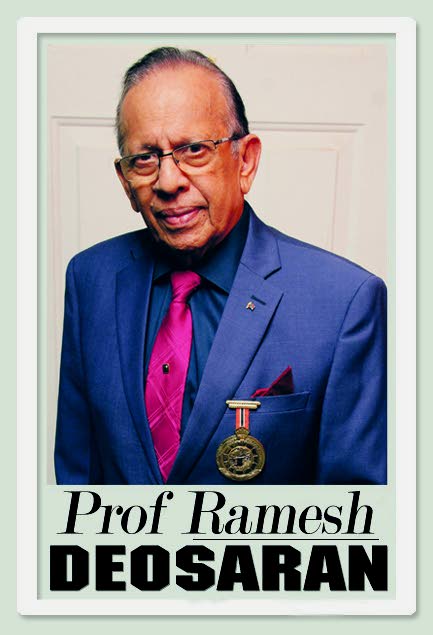Dr Rowley and vetted units

When the Special Anti-Crime Unit of TT (SAUTT) was established to fight “police corruption” by the Patrick Manning administration, two serious, related concerns were raised in Parliament: Was SAUTT a legal unit and to whom should it report, the minister of national security or police commissioner?
These concerns were raised by then independent senator, the late Dana Seetahal and myself to which then minister of national security, the late Martin Joseph struggled to answer. Further, the UNC government in 2010 disbanded SAUTT and its head, Brigadier Peter Joseph sued and had to be paid $ 1 million. There are therefore lessons to be learnt, and intelligent as PM Dr Keith Rowley is, he should reflect and consider carefully how he intends to insert the “vetted units” into or alongside the police service. (Vet means a careful and critical examination of a scheme or candidate.)
Look, the bottom line in all this is that the population, PM and politicians all know there are some police officers who have been corrupt in several ways. Every PM has complained. The difficulty increases when police are appointed to police and investigate the police. Mr Manning scratched his head for a solution. He said so in Parliament. PM Dr Rowley is now scratching his head. The million-dollar question remains: Why does it appear so difficult for the existing investigating, intelligence and prosecuting agencies existing inside or related to the police service to fight police corruption? Why don’t we scientifically find out and then apply whatever remedies are properly required?
Of course, Rowley has yet to spell out the framework and intended operations of these "vetted” officers, a special unit intended to battle police corruption. While his intention to weed out “police corruption” may be good, he must avoid making the mistakes made with SAUTT. The loud resistance to these vetting units already forwarded by Police Social and Welfare (PSSWA) president Gideon Dickson, suggests the need for consultation.
The “extra payment” to the vetting units, as Dickson indicates, could become an industrial relations and inequity challenge for Dr Rowley’s plan. The question of how and who should be selected for these vetting units also concerns the PSSWA. That too was a burning issue with SAUTT. It caused divisions and subversion of SAUTT’s purpose. The intention to hook the units onto the FBI needs careful operational analysis too. The US policing and accountability system is far different from ours.
As attorney Martin George and Dickson indicated, the “extra-pay” matter has legal implications, possibly reaching the courts where taxpayers money could again be used. The PM, as chairman of the National Security Council, should explain some of the framework, administrative and operational details, as well as the mentioned relationship with the FBI. In this public explanation, he should also indicate the role of Commissioner of Police (CoP) Erla Christopher-Harewood in the establishment and operations of these units because from SAUTT’s experience, the question will arise as to whom would these units report. Certainly, it couldn’t be to the FBI? Otherwise, Dr Rowley should shelve this vetting plan.
The PM’s careful consideration is required especially since whatever police corruption these vetted “anti-corruption units” allege, the suspects will have to be charged, allowed to respond, judged and possibly prosecuted.” Obviously, other agencies will have to be involved in the process. So as I have already said, while collaboration and supplementary assistance may be welcomed, redundancy and operational conflict should be avoided. It is not a simple matter of forming another investigative and oversight unit without considering the role of the Professional Standards Bureau (PSB), Police Complaints Authority (PCA) and even the Director of Public Prosecutions (DPP).
Mr George made an instructive point in relationship to the “extra pay” for the vetting units. He said: “When you look at it over the years, it is not money that motivates good and dedicated persons to do their jobs.” Money may be necessary but not sufficient.
Two additional things here. One, matters of national security and policing should be properly and transparently handled, and not be unnecessarily subjected to protracted squabbles. Two, public confidence and trust in our police and national security systems are vital for our democratic way of life. All this is an indispensable part of good government.

Comments
"Dr Rowley and vetted units"